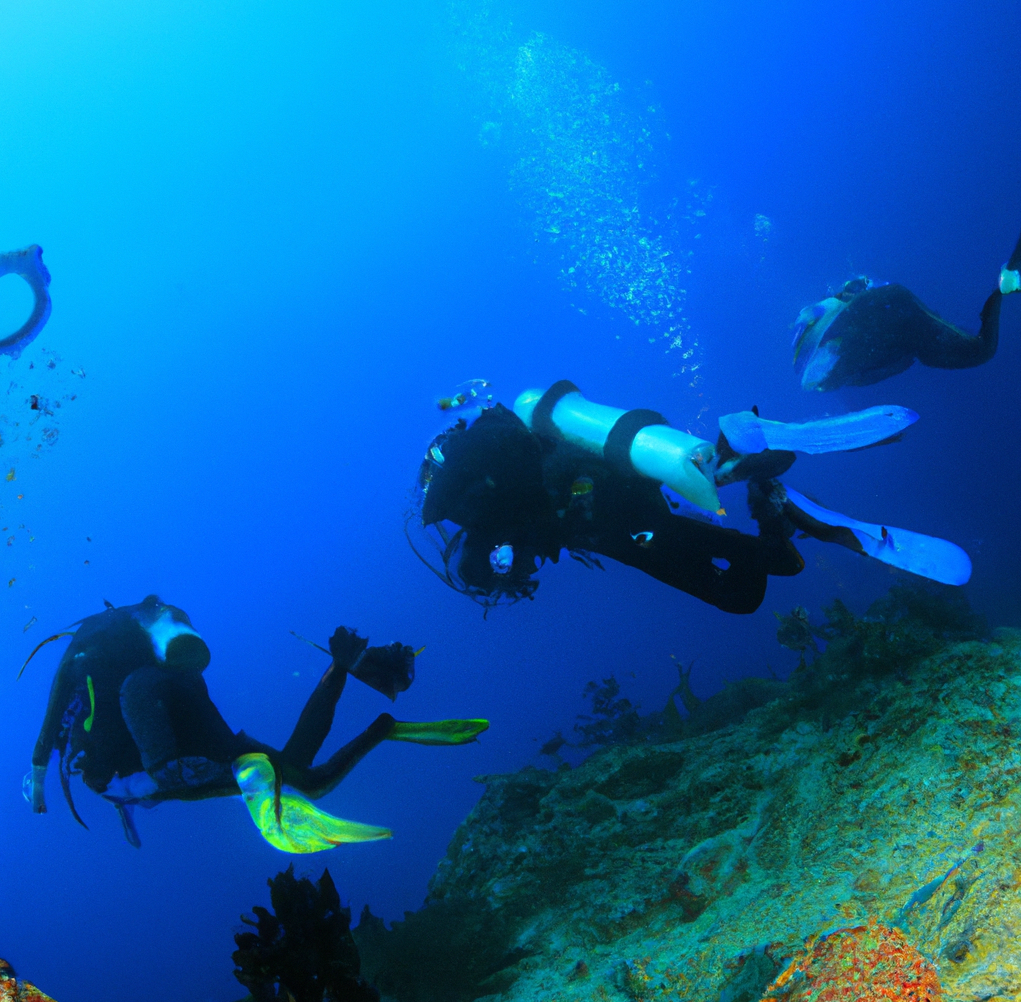No products in the cart.
Most Important Rule in Scuba Diving

Imagine gliding weightlessly through crystal-clear waters, surrounded by vibrant coral reefs teeming with exotic fish. Scuba diving unlocks this awe-inspiring underwater world, offering an experience unlike any other. But with great adventure comes responsibility. Before you take the plunge, let’s explore the golden rule of scuba diving, which is essential for ensuring your safety and unlocking the true magic of your underwater journey. This isn’t just another rule; it’s the foundation for countless exhilarating dives, allowing you to explore with confidence and create memories that will last a lifetime.
Here are the most important rules to remember when scuba diving:
Breathe Continuously
Forget holding your breath, continuous breaths are your mantra underwater!
This isn’t just rule #1 for new divers, it’s the golden ticket to all of your safe and enjoyable dives. Why? Imagine your lungs like balloons. At depth if you hold your breath, and then start up, the air in your lungs expands. This can cause serious injury. Instead, breathe steadily from your regulator, mimicking your natural rhythm on land.
That in a nutshell is the most important rule in scuba diving. There are a few other important things to remember while marveling at the beauty of the world beneath the waves.
Always Dive With a Buddy
You are down in the underwater world. You are mesmerized by a school of vibrantly colored fish. Suddenly, your mask fogs up. In other divers, panic might start to rise, but not you. You dive with a dive buddy, a reassuring presence just a fin-flick away. Diving solo might seem adventurous, but in reality, without proper training and gear, it’s a risky gamble. This is why “buddy up” isn’t just a suggestion, it’s a dive commandment!
Think of your dive buddy as your underwater guardian angel. They are there to assist with equipment checks at the surface. Underwater, they point out cool marine life you might miss. Most importantly though, they provide immediate help if things go pear-shaped. Let’s face it, even the most skilled divers can encounter unexpected issues – a cramp, a lost fin, or simply needing an extra set of eyes. Having a competent partner who shares your dive experience level ensures you have the support you need to handle any situation calmly.
Remember, choosing the right dive buddy is a key to a great dive. For me, my dive buddy is almost always the Lovely and Talented Kathy. YOu can’t have her, but you can find someone you love diving with. Don’t just grab anyone with a tank! Look for someone you trust, someone with similar skills and experience. Communication is crucial, so ensure you’re comfortable signaling and understanding each other underwater. Remember, a good dive buddy isn’t just a safety net, they’re also a chance to share the incredible experience and create lasting memories together.
Stay Within Your Limits
The ocean’s call is powerful and tempting. Rremember though, diving isn’t about conquering depths, it’s about conquering your own limits – safely and responsibly. That means ditching the “go big or go home” mentality and embracing the power of “know your limits, dive your limits.”
Think of it like climbing a ladder. You wouldn’t jump straight to the top, right? Each rung represents your training and experience, building a solid foundation for safe exploration. Pushing beyond your limits is like skipping rungs – tempting, maybe, but potentially disastrous.
So, how do you find your “personal depth limit”? Simple! Follow these golden rules:
- Respect your training
Remember those hard-earned diving certifications? They exist for a reason! Stick to dives within the depths and skills you’ve mastered. - Listen to your body
Feeling nervous or unsure? Dive another day! Intuition is your underwater GPS, so don’t ignore its warnings. - Buddy up with experience
Diving with a more experienced partner isn’t just about safety, it’s about learning and expanding your limits gradually.
Remember, exploring within your limits doesn’t mean limiting your experience. The underwater world is vast and vibrant, offering incredible adventures at every depth. By respecting your boundaries, you’ll not only stay safe but also maximize your enjoyment, confidence, and the number of dives you can safely experience.
So, the next time you’re gearing up, embrace the mantra: know your limits, dive limitless. It’s not about holding back, it’s about setting yourself up for a lifetime of safe and unforgettable underwater adventures.
Wrap Up
By mastering these fundamental rules and prioritizing good judgment, you’re not just ticking boxes – you’re unlocking a world of underwater possibilities. Whether you’re a wide-eyed newbie or a seasoned explorer, remember: safety isn’t a burden, it’s the foundation for countless thrilling dives and unforgettable memories. It doesn’t matter if you are diving in a quarry, a shore dive like the beautiful Blue Heron Bridge, or off your favorite dive boat, these tips will keep you safe as you explore the depths.
So, take a deep breath (continuously, of course!), grab your buddy, and chart your course. The ocean awaits, teeming with vibrant life and breathtaking experiences. Dive confidently, dive responsibly, and discover the magic of the world beneath the waves!

Join Our Mailing List For New Scuba Divers
If you like this tip for new scuba divers, join our mailing list. You’ll get a new tip delivered to your inbox each week. Learn to dive confidently!